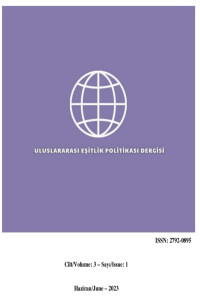Öz
States make policy transfers from other countries or supranational institutions in areas they need help to overcome or think insufficient to respond quickly and effectively to the increasing intensity and this intensity. Policy transfer plays an active role in eliminating the problems in the places that countries think they need and in establishing a healthier system in state-individual relations. It aims to make the internal mechanisms of the countries operative. One of these policy transfers is the Ombudsman institution. Its origin dates back to the 18th century; The ombudsman institution, which emerged in Sweden and Sweden and is applied in many countries today, is a supervisory institution created to provide solutions to the problems, grievances, and deficiencies that arise between public institutions and individuals or other institutions, without going to court. Today, the increasing general density and the need for more judicial and administrative control mechanisms added to it can cause problems/unfair behavior in public-individual relations. The Ombudsman institution, acting as a mediator, suggests removing undesirable behaviors from the public and better developing the state-individual union. With the constitutional amendment made in 2010 and the law enacted in 2012 in Turkey, the Ombudsman Institution came to life on a legal basis. As a policy transfer by Turkey in the European Union membership process; The current effectiveness of the institution included in Turkish public life is still unclear; On the other hand, it remains a question whether this institution is entirely sufficient in the relationship between the state and the individual in practice.
Anahtar Kelimeler
Ayrıntılar
| Birincil Dil | Türkçe |
|---|---|
| Konular | Kentleşme Politikaları, Politika ve Yönetim (Diğer) |
| Bölüm | Araştırma Makaleleri |
| Yazarlar | |
| Erken Görünüm Tarihi | 25 Haziran 2023 |
| Yayımlanma Tarihi | 28 Haziran 2023 |
| Yayımlandığı Sayı | Yıl 2023 Cilt: 3 Sayı: 1 |


